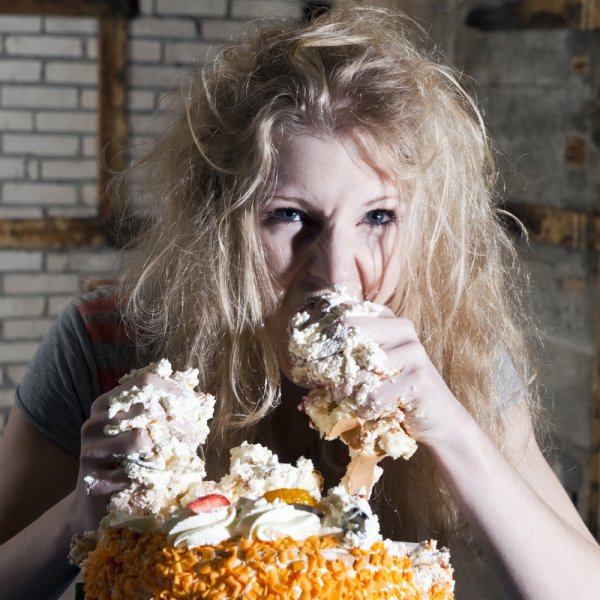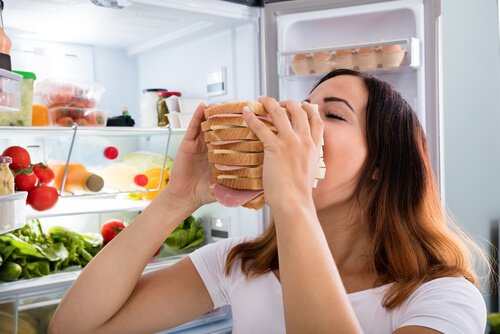Why Do You Eat More When You're Stressed Out?

Why do you eat more when you’re stressed out? The relationship between stress and food has a long history. Stress affects many people around the world. Likewise, society demands people to know how to solve emotional or social issues.
In 1926, Hans Selye first defined stress as an “unspecific response from the human body to any demand”. The body answers in a similar way to anything that it considers stressful, no matter what caused it.
Due to this, when there’s a lot of physical or psychological stress, your body suffers physical, biological, and hormonal changes.
Almost all of your organs are part of this process. This includes the brain, nerves, heart, stomach, and muscles, among others. Thus, creating excessive activity of the central nervous system, and the endocrine and immunological systems. This produces more hormones such as adrenaline, noradrenaline, and cortisol.

What causes stress?
Stress occurs due to two factors: external causes, such as financial, emotional, or work issues, and internal causes, such as pain, disease, or psychological issues.
Experiencing stress for a long time can affect your health. It makes it easier for pathologies to appear in your body or increases the chances of suffering eating disorders, like eating more when you’re stressed.
“Anxiety creates a need to resort to substances that increase serotonin or other neurotransmitters to counteract stress. These substances are usually sugary goods and fatty foods. Stress increases cortisol production in the body and fat deposits.”
-Javier Aranceta-

Why do you eat more when you’re stressed?
Stress can alter appetite and hunger. Likewise, it creates a dissociation between appetite (mental) to hunger (organic).
Wanting to eat more or not depends on the body’s chemistry and circulatory changes. As well as impulses sent to the midbrain from other organs in your body.
Emotional hunger leads to eating more in response to emotions, especially negative emotions. The most common signs of this are:
- Obsession for food.
- Using food as a prize.
- Eating compulsively.
- Continuing to eat despite feeling satisfied.
- Weight changes.
- Unable to identify why you’re eating.
- Lack of connection between psychological signs of being satisfied and hunger.
- Eating faster than normal without even realizing it.

How eating more when stressed affects your body
When stressed, some people eat foods high in fat, calories, sugar, and salt. They eat more when they’re stressed.
Behaving like this for a long period of time can have side effects on your health and can not only lead you to be obese or overweight but it can also increase the risk of suffering from the following:
- Hypercholesterolemia.
- High blood pressure.
- Hypertriglyceridemia.
- Stroke.
- Heart disease.
- Heart attack.
- Muscular problems.
- Respiratory disorders.
- Cancer.
- Diabetes.
- Insomnia.
All cited sources were thoroughly reviewed by our team to ensure their quality, reliability, currency, and validity. The bibliography of this article was considered reliable and of academic or scientific accuracy.
Baratucci, Y. (2011). Estrés y alimentación.
Greeno CG &Wing RR (1994) Stress-induced eating. Psychological Bulletin 115: 444-464.
Laitinen J & Sovio U (2002) Stress-related eating and drinking behaviour and body mass index and predictors of this behaviour. Preventive Medicine 34: 29-39.
Lattimore P & Caswell N (2004) Differential effects of active and passive stress on food intake in restrained and unrestrained eaters. Appetite 42: 167-173.
This text is provided for informational purposes only and does not replace consultation with a professional. If in doubt, consult your specialist.








